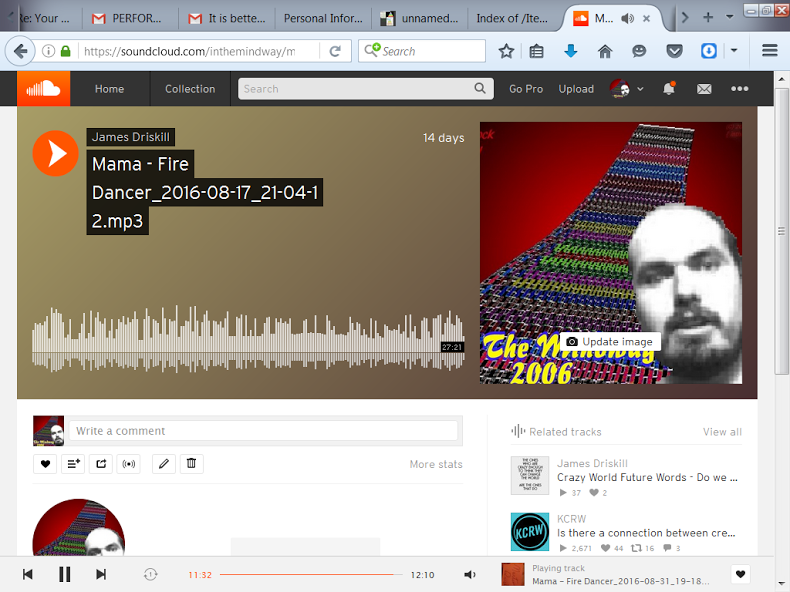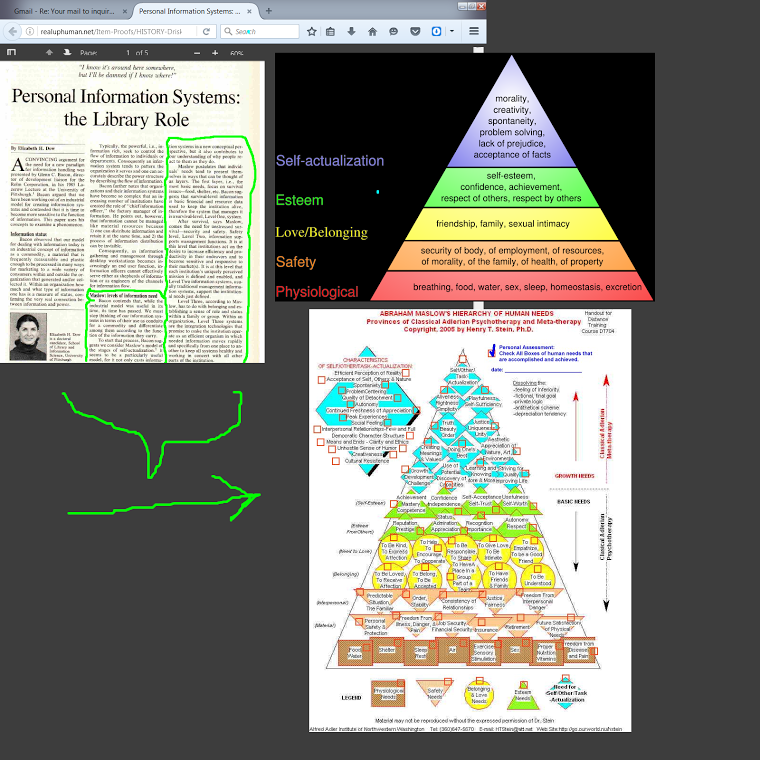| PERFORM THE FOLLOWING PLEASE ! [ MAILTO://inquiry@fuckeduphuman.net ] |
| Martin J. Driskill <inthemindway@gmail.com> | Thu, Sep 1, 2016 at 6:12 AM | ||||||||||||||||||||||||
Reply-To: Martin.J.Driskill@inthemindway.org To: Martin.J.Driskill@inthemindway.org Cc:
Joy Badwound <jbadwound@gmail.com>,
Martin.James.Driskill@gruwup.net, Cinamon 'The Spice Of Life To Makes
Nice' Romeo <cinamon@rockymountaincares.org>,
"tracy.scott@uchealth.org" <tracy.scott@uchealth.org>,
monica.flynn@uchealth.org, Dennis Driskill <svtcobraman@aol.com>,
Clay Darnell <coloradofrogman@yahoo.com>, Debbie Kick
<debrakick@att.net>, "isaacjackson.phd@gmail.com Jackson"
<isaacjackson.phd@gmail.com>, "Isaac Jackson, Ph. D"
<blogging.on.drugs@gmail.com>, standards@colorado.edu,
THIS-CASE-SHOULD-BE-FORWARDED-TO-ALL-NEWS-MEDIA@realuphuman.net,
720-207-3988@fuckeduphuman.net, Jim Whitescarver
<jimscarver@gmail.com> | |||||||||||||||||||||||||
 
11:40 PM (1 hour ago) 
"It is better to be fucked up human than dumbed down ignorant" -Martin J. Driskill Fri, Jun 22, 2007 at 2:08 PM ====== Ms. Tracy Scott --- Please forward this to Monica Flynn. I will use the default naming email address per uchealth.org naming conventions and hopefully this will make it to her directly. http://realuphuman.net/Item-Pr Index of /Item-Proofs/HISTORY-Driskill/
| |||||||||||||||||||||||||
| @MASSIVEMISCHIEVOUSMARVELOFMOL |
Jan 15, 2007 |
Are you unaware that you may be standing in a Collective Informational Quarantine?
By standing still and silent in your collective community, whatever community you might be.... A massive mischievous acts of humans might just be molding your collective community, those around you, or you directly. The MISCHIEVOUS factor of these human acts --- makes these acts wrong!
The ultimate flow of the continuing presence of these hurtful hateful few [comparitive to all of humanity] erodes us humans down our dignity, human life, and the outcome is our HUMAN DEATH.
This occurs one human death by one human death at a time --- not something that everyone might become too well aware. Not something that might result to react others to unify a revolt of change.
The oppression, persecution, and downright hatred of humans remain and will remain for quite some time of our human presence on this planet. But in of that itself --- it is no excuse to just ignore these facts.
But what is of today, those who have hateful heart to act out their wrongful deeds have been given new tools [the same tools that we have right here] to work. And of course, they still retain their old ways too. Their wrongful acts intend harm to dredge the life force out of the humans they dislike into the gutter --- and more severe into HUMAN DEATH.
And once again, I ask you with a bit more direction.
Are you sitting? You better STAND UP!
Are you still? You better WAKE UP!
Are you standing still in a Collective Informational Quarantine?
For what I know is this, the collective community in which I belong [belonged?] to --- just so has this presence fact.
I have documented it to provable circumstance.
What is written here --- and linked to what is out from here --- is what must be brought into mind working focus --- beyond any and all of the facts themselves.
This is to break the marvel -- the marvel of molding muck.
And I know for sure that I am remaining in the collective informational quarantine that will take me to death. So, when one realizes that this site's writings FALL STILL.... you might want to see the truth and answer me back this.
Do you Agree? Am I Right? Am I Wrong?
The Full Orginial Source Reference Will Be Posted Online
Reply here --- even if I I have falled down dead. I have faith that I will get your answer from whereever the afterlife is. Perhaps to rechain back a direct answer right back here from what will be my next Planet Earth reincarnation. For I am sure that multiply.com will survive the life to life transformation.
Do you have a good heart?
Do you want to finally answer me directly?
This before one of your circle peers does.
This before one of your family circle does.
Alan Horwitz @ Hayward Court Clerks Office June 21 2006 8am
Man to Man, I begged on my hands and knees : pleading
And what you were about to file with the court....
"disingenuous" was the phrase I used --- and you knew it too.
You filed that false bull shit anyway, didn't you.
These acts among many you have made against me is criminal neglict.
FBI Agent @ FBI OFfice Oakland CA June 21 2006
Man To Man : I begged on my hands and knees : pleading
To Not forget about me. His promise back was, "He Wont".
So here we go....
whatever-time : cybermark : Sharing In Kind Here : whatever-expires
Real Up Human
A Real Up Human strongly has at his or her core foundation --- Only real truth and real honesty are reliable strongholds that we must choose for ourselves to build our life upon. Forging forward in time, the core of real up humans makes aspirations to truthfully define our reality in every moment to moment we exist. First for each one human of themself and then effortlessly outward onto all others around. For all of the paths that real up humans walk, it is that walk of talk of real truth. That truth bearing our existance -- fullment -- purpose -- happiness -- in everything that was, is, or will be for real up humans. Completed work realities made whole, effortlessly done. In that whole it could never ever be gone.
I take the whatever time is needed to be a real up human to those I call friend -- and in kind return seals that friendship to me for that may be the one I most need in my final end.
by In the Mindway The universe of happiness & it's discovery is out here - it's our trip. Apr 30, 2005
In a process of not only making a statement of "good doing magic" in memetic construct.....
What I now have here defined by domain_memespace specifically is a "morality correctiveness model" goal of positive memetic engineering that I call to action as...
"Great Reasons Urbans Will Unite Peace"
vs.
"Massive Mischievous Marvel Of Molding Muck"
Please remember that there is negative [evil] memetic engineering happening all around us in many many ways... In just one example, these can be simply defined by the deceptive practices found to be inherently designed into information technology of spam and phising scams.
These are humans of intelligence that are working from the understanding of science and information technology coupled with memetic human thought concepts. The intelligence factors state we must fight back against these evils by sharing in kind reply, i.e. S.I.K.H (pronounced 'seek') Sharing In Kind Here.
"However, if one cannot test for "better" empirically, the question will remain whether or not the meme concept counts as a valid scientific theory. Memetics thus remains a science in its infancy, a protoscience (to proponents) or a pseudoscience (to detractors)." [source wikipedia:meme]:
What is defined below services the utilization of validity tests:
The simple model is :
Anyone to everyone can CYBERMARK the global humanity of cyberspace or within your own private domain space [ @home or @work ]. All that is needed is to install indexing and search utilities such as
Search and personalize your computer
to search and apply a collective link to these labels in an united front against evil deeds and negative memes that are opposing humanity and global peace and reinforcing good deeds and positive memes that are supporting humanity and global peace.
I use the Internet domain place-marks as domain_memespace [or memespace by domain] or cybermark as to its "PERMANENCY" onto the humanity of change --- and ideals of IMORTALITY to each one who utilizes the collective conscience of these purposes shall not be lost --- that would be forever to the infinity of the future of all human time.
Do you think I am crazy? You are obviously suffering from meme resistance factors.
SEE:
http://www.memography.org/inde
"We propose to create memespaces for owners of domain names by the formula MEMO-TLD.DOMAIN.SUBDOMAIN.
MEMO-COM.GOOGLE and MEMO-COM.APPLE are thus automatically registered memespaces."
Go fix some weighty truth;
Chain down some passion; do some good;
Teach ignorance to see or grief to smile;
Correct thy friend; befriend thy greatest foe;
Be just in all things; make amends
For follies past, and, with warm heart,
Forgive, and be forgiven. Let work not words
Thy virtue prove. Go act as well as prate,
And then thy counsels will be strong,
Thy reprimands avail.— ANON.
--| Read Source.....
When we apply the past reverence to these messages of ethics and morality that are placed into writings of others from our past human history forward into our future -- this is our duty of response to our shared humanity for all of our worldly experiences.
These are the domain_memespace of cybermark that you can apply to individual partial_thoughts to become "inclusive" by simple internal or external labeling onto your world. This follows the ideals of urbandictionary's motto : Define Your World.
partial_thoughts = "We know it exists today because so many of us have personally experience it and speak about it with face to face language. We have it, but it has an unusual characteristic that provides no means of a historical chronicle should it decay to ruins. It is silent to our ears; no audio recording can exist. It is invisable to our eyes; no photographs can be taken. Can't touch it, no smell or taste. It does exist and what exists around our world usually follows either natural effects of time decay and withering away by accidental or hostile acts of destruction. Should it disappear it will be lost."
[ in reverse chronological order of registration time]:
@MASSIVEMISCHIEVOUSMARVELOFMOL
Google Meme Phrase Search [ "Massive Mischievous Marvel Of Molding Muck" ]
Registrant:
In The Mindway
7607 International Blvd
Oakland, CA 94621-2741
US
Registrar: NAMESDIRECT
Domain Name: MASSIVEMISCHIEVOUSMARVELOFMOLDINGMUCK.NET
Created on: 16-JUL-06
Expires on: 16-JUL-08
Last Updated on: 16-JUL-06
@GRUWUP.NET [ Great Reasons Urbans Will Unite Peace ] [whois]
Google Meme Phrase Search [ "Great Reasons Urbans Will Unite Peace" ]
Registrant:
In The Mindway
3260 Grande Vista
San Bernardino, CA 92405
US
Registrar: NAMESDIRECT
Domain Name: GRUWUP.NET
Created on: 16-JUL-06
Expires on: 16-JUL-08
Last Updated on: 02-SEP-06
Humans [urbandictionary reference]
There are two adversary forms of humans which are the Fucked Up Human and the Real Up Human. To scale from one or the other, all humans fall somewhere in line by every action that a human makes -- even each and every last keystroke being done.
Well be real up ya all humans... ok?
by In the Mindway The universe of happiness is out here May 1, 2005
@FUCKEDUPHUMAN.NET [whois]
Google Meme Phrase Search [ @FUCKEDUPHUMAN ]
Registrant:
In The Mindway
7515 International Blvd
#308
Oakland, CA 94621-2741
US
Registrar: NAMESDIRECT
Domain Name: FUCKEDUPHUMAN.NET
Created on: 10-JUN-05
Expires on: 11-JUN-08
Last Updated on: 06-MAY-06
How do you declare someone or someone's actions as being Fucked Up Human?
Use your creative elements and the .net is optional.
Let me pick on myself for example:
This is a person's name: [ James_Driskill@FUCKEDUPHUMAN ]
This is a person's phone: [ 5105620703@FUCKEDUPHUMAN ]
Or this labeling concept can be expanded with details to an actual Fucked Up Human Event:
[ Howard-SHOCK-AND-AWE---GuessWh
--- See Google Earth Placemark: @MASSIVE MISCHIEVOUS MARVEL OF MOLDING MUCK.kmz or [ View as Image Only ]
Remember --- there are no limits to memes and memespace ---you can create others in simular form for you own uses and/or share them out to the world too!
Applied Memetic Engineering Systems : a morality correctiveness model
@REALUPHUMAN
@INTHEMINDWAY
@FUCKEDUPHUMAN
[UrbanDictionary Defintions]
@GRUWUP.NET : "Great Reasons Urbans Will Unite Peace"
"Massive Mischievous Marvel Of Molding Muck"
@REALUPHUMAN.NET [whois]
Google Meme Phrase Search [ @REALUPHUMAN ]
Registrant:
In The Mindway
7515 International Blvd
#308
Oakland, CA 94621-2741
US
Registrar: NAMESDIRECT
Domain Name: REALUPHUMAN.NET
Created on: 10-JUN-05
Expires on: 11-JUN-08
Last Updated on: 06-MAY-06
---
Go fix some weighty truth;
Chain down some passion; do some good;
Teach ignorance to see or grief to smile;
Correct thy friend; befriend thy greatest foe;
Be just in all things; make amends
For follies past, and, with warm heart,
Forgive, and be forgiven. Let work not words
Thy virtue prove. Go act as well as prate,
And then thy counsels will be strong,
Thy reprimands avail.— ANON.
--| Read Source.....
----
"For even Christ did not please Himself." Romans 15:3
"Are you dejected? Is your mind overcast?
Go, fix some weighty truth;
Chain down some passion;
do some generous good;
Teach ignorance to see, or grief to smile."
--| Read Source.....
---
“Chain down some passion; do some generous deed;
Teach ignorance to see; or grief to smile;
Correct thy friend; befriend thy greatest foe;
With warm heart and confidence divine,
Spring up and lay strong hold on Him who made thee.
- Young
--| Read Source.....
---
Teach Ignorance to see, or Grief to smile;
Correct thy friend; befriend thy greatest foe;.
Or, with warm heart, and confidence Divine,
[PDF] "NIGHT THOUGHTS ON LIFE, DEATH, AND IMMORTALITY : IN NINE NIGHTS" by Edward Young,1683-1765
--| PDF | Read Originating Source
---------
Selma to Montgomery March (1965)
RETURNS THIS:====inquiry@fuckeduphuma..> 31-Aug-2016 23:31 42M
inquiry@fuckeduphuma..> 31-Aug-2016 19:08 20K
---------- Forwarded message ----------
From: <info@fuckeduphuman.net>
Date: Wed, Aug 31, 2016 at 11:38 PM
Subject: Re: Your mail to info@fuckeduphuman.net
================================================
AUTO-REPLY TO:
Inquiry
@RealUpHuman.net : @Gruwup.net : @MuckedUpHuman.net : @FuckedUpHuman.net
This AUTO-REPLY TEXT HAS SPOKEN VOICE NARRATION AT:
http://fuckeduphuman.net/inquiry@fuckeduphuman.net-%20Spoken %20Voice%20Narrative%20Audio%2 0-%20Slower.mp3
====
Dear Interested or Concerned or Directly Referenced Internet User(s).
The four (4) Websites that are mentioned in this header AUTO-REPLY is a set of unique internet domain name presence that has been standing in my ownership care for more than 10 years now [ Effectibcely With the Cross Over Period of October 2009 all four will be 10 years but in general these domains are for use in a triad name space not a quad naming space.
Each of these internet domains are not considered at this time a coded graphical web user interface (UI) Operation but considered in terms of scientific information theory in memeitcs as "memespaces". For info, see: http://memespace.net :
Global Cyberspace and Personal Memespace | KurzweilAI
www.kurzweilai.net › Essays
Ray Kurzweil
Feb 21, 2001 - Global Cyberspace and Personal Memespace .....
http://www.kurzweilai.net/global-cyberspace-and-personal-mem espace
Also See Reference to Personal Information Systems and The Library Role archived at:
http://realuphuman.net/Item-Proofs/HISTORY-Driskill/Personal : November 1st 1987%20Information%20Systems%20the %20Library%20Role.pdf
Note The Administration Ownership of these domains is: James Martin Driskilll [ Effecive Sept 1st 2016 to be known as Martin J. Driskill : Martin.J.Driskill@Gruwup.net
And can be found period listed this these same Library Journal publications A Month Preior this publication.
http://realuphuman.net/Item-Proofs/HISTORY-Driskill/Public%2 :0Access%20Microcomputer%20Serv ices%20in%20Public%20Libraries
September 1st 1987.
And Reference This Writing on Wikiworld plrease.
http://wikiworld.com/wiki/index.php/InTheMindway
----
"The pathway that the mind travels..."
We know it exists today because so many of us have personally experience it and speak about it with face to face language. We have it, but it has an unusual characteristic that provides no means of a historical chronicle should it decay to ruins. It is silent to our ears; no audio recording can exist. It is invisable to our eyes; no photographs can be taken. Can't touch it, no smell or taste. It does exist and what exists around our world usually follows either natural effects of time decay and withering away by accidental or hostile acts of destruction. Should it disappear it will be lost.
- An Individual Human Thought-
Monday, October 14th, 1996 07:48PM PT
The Birth of "In The Mindway"
This is most beautiful. please give us some links if there are any. You are most welcomed. -- JimScarver
And what about Truth. does anybody care about Truth? We do not know what we think we know because Truth is not absolute and it is not arbitrary. -- JimScarver
Note: I may move the below information to a new page, but for right now....
You Asked, The Answer Is...
I do care about truth. But as you say truth is not absolute. Not so fast, I will explain. But I wholeheartily agree truth is not arbitrary.
My truth, your truth, universal truth, all can have infinite facets of TheGoodLife. Holding virtue for certain self truths or group mind truths is not an absolute moral truth. What I mean here is can we have an absolute moral truth anyway? The allaboutphilosophy : Moral Truth article [2] suggests there are many problematic situations placed upon "Moral Truth" and as such the article gives the conclusion suggestion that Moral Truth cannot be absolute.
Moral Truth – Why Does It Matter?
When self-interest rules, it has a profound impact on behavior, especially how we treat other human beings. The notion of human dignity depends on there being objective moral truths. Instead, we can discard people when they become troublesome or expensive.
With moral relativism, anything goes! The death of objective morality is filled with an “anything goes†mentality. Nothing is ultimately wrong if you can get away with it.
I will directly provide a displacement view of analyst considerations to these two quotes:
"Instead, we can discard people when they become troublesome or expensive."
"Nothing is ultimately wrong if you can get away with it."
Under a memetically active system that I conceptually hold by memespace by domainnames, I profoundly disagree with this article's stance and there is something of "cultural Change" that can be placed into the record especially if there is a conflict that has arisen from one person's [or group] actions that is of self-interest which actually has or will harm others or strip away our given universal human rights including our human dignity.
Let me offer the name of what I conceptually hold as possible displacement here:
"Applied Memetic Engineering Systems : a morality correctiveness model"
goal of positive memetic engineering that I call to action as...
"Great Reasons Urbans Will Unite Peace"
vs.
"Massive Mischievous Marvel Of Molding Muck"
Using the memespace by domain @realuphuman.net : @gruwup.net : @muckeduphuman.net : @fuckeduphuman.net frankly just cannot be discarded and will demand the attention of the offender. The key phrase "get away with it" really cannot hold true anymore.
The purpose for bringing a situation and labeling it is for "computer aided conflict resolution" where as outside of court but within this memespace to remove what is most FU about something and settle it Real Up Human and Gruw Up. This can be established first most private communications with the element of possible publicly visible real negotiations will be very apparent motivators.
Verizon Already Uses phone Numbers at their Domain
Think of a small application that when a phone receives
a call from a particular number, the application can check
the memespace for @realuphuman.net : @gruwup.net : @fuckeduphuman.net
and return a "trust" valuation instantly? As long as what is posted
of information there is the ABSOLUTE TRUTH to the circumstances involved,
no defamation or liable suit could be pursued. No one would want to
create the paradox of placing a false story to the record when if such
story could be then disproved, their identity would be immediately placed
to the wrong side character and reputation.
It should hold its own MORAL TRUTH Soundly. Having great responsibilities
for these domains has to be properly coded.
The coding of my domain mememspaces has to be full features to address the concern that is written in the wikipedia article Meme [3]
Luis Benitez-Bribiesca M.D., a critic of memetics, calls the theory a "pseudoscientific dogma" and "a dangerous idea that poses a threat to the serious study of consciousness and cultural evolution". As a factual criticism, Benitez-Bribiesca points to the lack of a "code script" for memes (analogous to the DNA of genes), and to the excessive instability of the meme mutation mechanism (that of an idea going from one brain to another), which would lead to a low replication accuracy and a high mutation rate, rendering the evolutionary process chaotic.
I envision that Moral Truth can be absolute along with all universal truths, group mind truths, down to your truth and my truth with the proper inclusion of "code script" as mentioned.
Memespace[4]
The memespace is an abstract cultural container populated by memes.
Memes are similar to genes and viruses in that they tend to propagate, evolve, corrupt and mutate. All these actions take place in the memespace. As a direct result, the memespace is considered volatile and prone to errors and corruption without rigorous error correction.
The rigorous error correction is the exact presence on the web, the user interface to initiate a user to user communications and to define the parameters and acceptable outcomes and non-acceptable outcomes PRIVATELY FIRST and then possible PUBLIC should no agreement be reached. Should be a simple idea --- then I would like the ability for partner websites to interface with data held in mememspace.
There is always the ability to CORRECT THE RECORD on any data across all pages on the internet. What our our shared responsibilities given to us? FOR THE RECORD....
Special Regards: A two fold book titled combined quote which both books can be found at Google Books. Google Book Search: [ "Go Fix Some Weighty Truth" [5]]
- There are very many book title matches, ( Current Result Aug 5th 2012 About 483 Google book results (0.27 seconds) ) this is a very important true fact and not a joke. These words written a while ago should be something that guides us all, but has been lost in our world of modern society morals. I now begin with just two of the book sources which contain various versions of these same sourced words.
[*] : Much instruction from little reading: or, extracts from some of the most approved authors ancient and modern [6][ various authors, specific pages 37/38 ]
[*] : History of the Counties of McKean, Elk, Cameron and Potter, Pennsylvania [ J.H. Beers & Co [7]: Preface ]
The Combined Quotation Is:
Art thou dejected?
Is thy mind o'ercast?
Amid her fair ones, thou the fairest choose,
To Chase Thy Gloom -
"Go Fix Some Weighty Truth;
Chain down some passion;
Do some generous good;
Teach ignorance to see,
or grief to smile;
Correct thy friend,
befriend thy greatest foe;
Be just in all things;
Make amends for follies past,
and with warm heart forgive and be forgiven;
Let work not words thy virtue prove;
Go act as well as prate,
and then thy counsels will be strong.
Thy Reprimands Avail.
THE province of the historian is to gather the threads of the past ere they I elude forever his grasp, and weave them into a harmonious web to which the "art preservative" may give immortality. Therefore he, who would rescue from fast-gathering oblivion the deeds of a community, and send them on to futurity in an imperishable record, should deliver a plain, unvarnished tale.
=======================
Domain Name: MUCKEDUPHUMAN.NET
Status: clientTransferProhibited https://icann.org/epp#clientTransferProhibited
Status: clientUpdateProhibited https://icann.org/epp#clientUpdateProhibited
Updated Date: 02-oct-2015
Creation Date: 15-oct-2009
Expiration Date: 15-oct-2016
As Soon as someone is willing to code me the necessary macro-keys... alll email addressess @muckeduphuman.net are resounded to @fuckeduphuman.net unless some one can give me a good --- very good reason why not.
see:
http://fuckeduphuman.net/%23Mpatapo-BindingKnotOfReconcillat ion/
---
See Posts Online in reference to these domains at:
http://community.gruwup.net/
/----------------------------------------\
| LinkedIn Public Post |
@Gruwup #Community #Peacebuilding : Binding Knot of Reconciliation called Mpatapo is missing in our modern world of information technologies.
http://community.gruwup.net/06/
http://community.gruwup.net/06/SpiralHeart-AllLivesMatter.pn g
| |
\----------------------------------------/
/----------------------------------------\
| Facebook Post : |
James Driskill shared a post to Nonprofit With Balls's Timeline.
May 15 ·
http://community.gruwup.net/06A/
http://community.gruwup.net/06/SpiralHeart-AllLivesMatter.pn g
| |
\----------------------------------------/
I was born on September 1st 1965 in San Bernardino CA,My Name Is Martin Driskill.I am requesting that everyone now refer to me by my middle name as my primary name is reference to my peace building efforts in relation to Dr. Martin Luther King Jr.
---------By given real legal given at birth isJames [ First ] Martin [ Middle ] Driskill [ Last ]I was of the fetal age of 3 months when the history of race relations in the United States historical events.Selma to Montgomery March (1965)
On Wed, Aug 31, 2016 at 11:35 PM, Martin J. Driskill <inthemindway@gmail.com> wrote:You can find the MASLOW'S CHART OF HUMAN NEEDS AT:http://esources.gruwup.netIndex of /
Name Last modified Size Description
?/ 27-Mar-2016 06:01 -
Adinkra.Symbols/ 21-Apr-2016 16:40 -
AdrinKra Symbols/ 23-Jan-2016 18:42 -
Awesome-Kramobone-Pl..> 05-Aug-2016 11:14 -
Colorado.Edu/ 20-Apr-2016 17:12 -
Crooked Beauty - Doc..> 26-Jul-2015 04:28 -
Hiarchy-of-Needs-Det..> 05-May-2015 02:27 186K
NSAA - Authentic - @..> 05-Jun-2016 04:31 455K
maslow-BasicHumanNee..> 05-May-2015 02:27 147K
http://realuphuman.net/Item-Proofs/HISTORY-Driskill/Personal %20Information%20Systems%20the %20Library%20Role.pdf
http://realuphuman.net/Item-Proofs/HISTORY-Driskill/
-----Index of /Item-Proofs/HISTORY-Driskill
Name Last modified Size Description
Parent Directory -
ButchtheDog.jpg 18-Sep-2005 09:00 68K
CallingCard-41555385..> 18-Sep-2005 09:00 276K
CertificateofIntelli..> 18-Sep-2005 09:00 499K
Dennis.Wayne.Driskill/ 27-Oct-2013 02:50 -
George.Garfield.Dris..> 27-Oct-2013 02:46 -
James-Driskill-Calif..> 17-May-2016 01:49 454K
James.Martin.Driskill/ 27-May-2016 16:51 -
JamesDriskillInfant.jpg 18-Sep-2005 09:00 5.0K
Norman F Feldheym Li..> 27-Oct-2005 09:00 198K
NotaryCertificate107..> 18-Sep-2005 09:00 629K
NotaryCertificate107..> 18-Sep-2005 09:00 46K
Personal Information..> 05-Mar-2013 06:48 1.1M
Public Access Microc..> 18-Nov-2012 13:30 1.1M
Re-John,Sally,&James..> 19-Sep-2005 09:00 60
SB Sun - Home Comput..> 22-Sep-2015 05:24 175K
SB Sun - Home Comput..> 22-Sep-2015 05:23 282K
Veronica.Ann.Warnick..> 18-Aug-2016 00:10 -
========[ SIGNATURE ]==============I was born on September 1st 1965 in San Bernardino CA,My Name Is Martin Driskill.I am requesting that everyone now refer to me by my middle name as my primary name is reference to my peace building efforts in relation to Dr. Martin Luther King Jr.
---------By given real legal given at birth isJames [ First ] Martin [ Middle ] Driskill [ Last ]I was of the fetal age of 3 months when the history of race relations in the United States historical events.Selma to Montgomery March (1965)
| 4 attachments | |||
| |||
| |||
| |||
| |||

![[DIR]](PERFORM%20THE%20FOLLOWING%20PLEASE%20%21%20[%20MAILTO%20_inquiry@fuckeduphuman.net%20]_files/B6NtdfM_XME4B196apHap8pPv8oGYYwQFSNvNhsP7GyGCFFXVpq84wE0pOqN.gif)





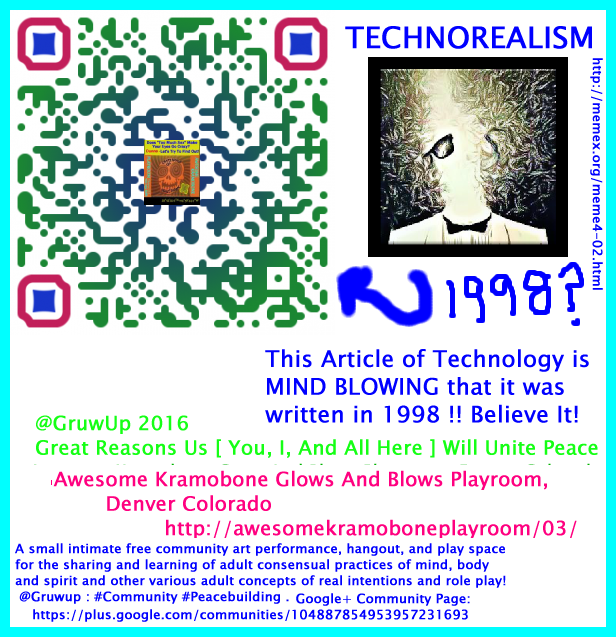

![[DIR]](PERFORM%20THE%20FOLLOWING%20PLEASE%20%21%20[%20MAILTO%20_inquiry@fuckeduphuman.net%20]_files/NEsYtlL7aTOA7hCIMK0SQS_ukLvrnaEObTj92nXii_udnTYXnUvyUz1c3oiH.gif)

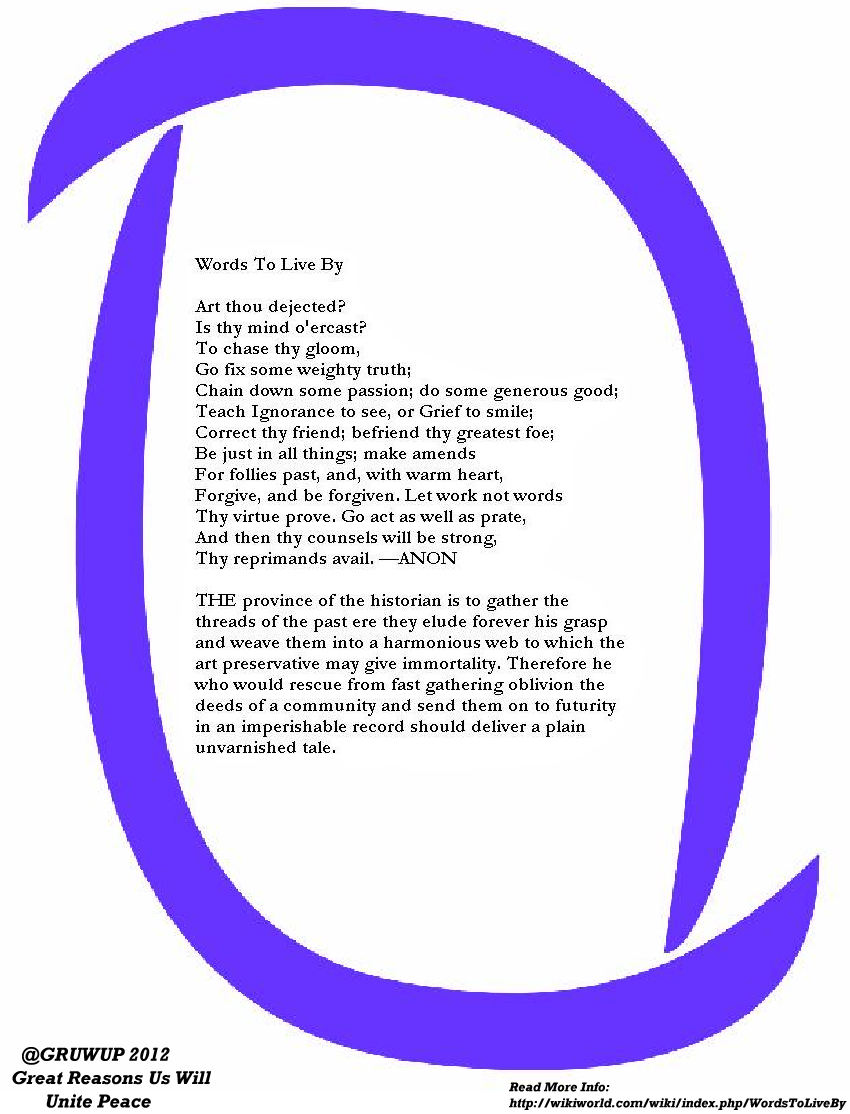
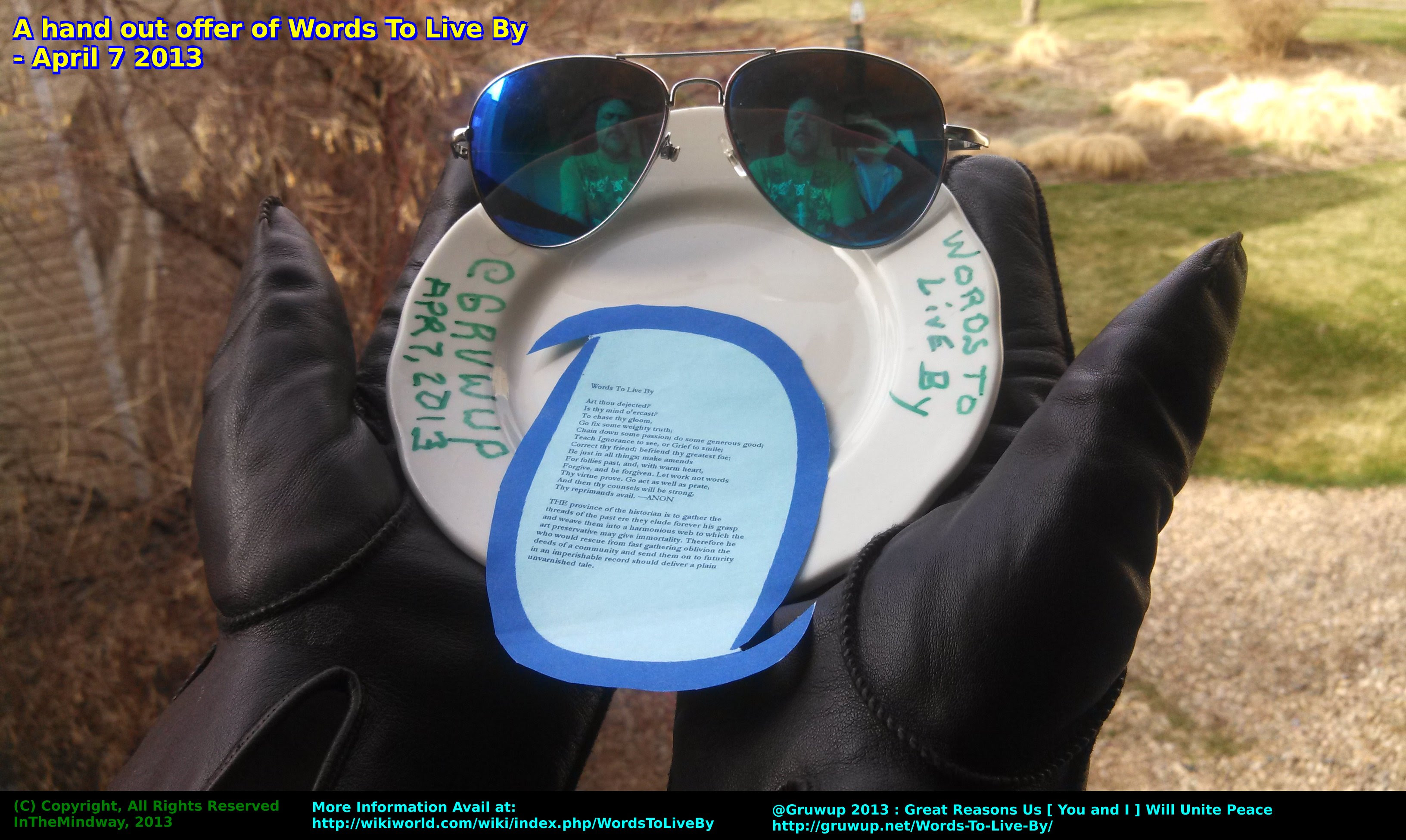
![[SND]](PERFORM%20THE%20FOLLOWING%20PLEASE%20%21%20[%20MAILTO%20_inquiry@fuckeduphuman.net%20]_files/i8LTHJJsN8nWNYMBl5BjrGqWLepNDFP7wPYfBPCSlSkwqy3Nh8c7katrhpVC.gif)
![[ ]](PERFORM%20THE%20FOLLOWING%20PLEASE%20%21%20[%20MAILTO%20_inquiry@fuckeduphuman.net%20]_files/5Dx5n2WVarwrBZagzfhdFo1OP117OHZxl778NdQm2j-Cu_KUuXvjbRdxFQie.gif)

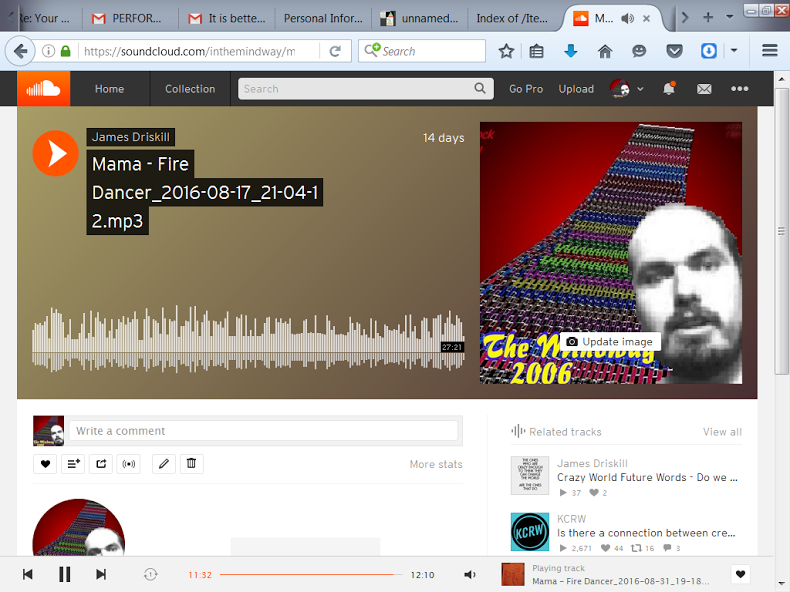


![[DIR]](PERFORM%20THE%20FOLLOWING%20PLEASE%20%21%20[%20MAILTO%20_inquiry@fuckeduphuman.net%20]_files/MLHmpy1reKSXMFAbklhY0uxuCPVVUvs887Wn37PZSjIyKV4JcWHdtPRkOAwu.gif)
![[ ]](PERFORM%20THE%20FOLLOWING%20PLEASE%20%21%20[%20MAILTO%20_inquiry@fuckeduphuman.net%20]_files/82T26kDO0VJ1lrq54z5_tiotwgOhFC9VapAkN6GV1ywddYwqGmWiyM66OCLl.gif)
![[DIR]](PERFORM%20THE%20FOLLOWING%20PLEASE%20%21%20[%20MAILTO%20_inquiry@fuckeduphuman.net%20]_files/-NXrPvTwoDkxv8gPJggaV7G5xQa54D6uOXRN3LCc32NUCZib6pz_5FQAW0im.gif)
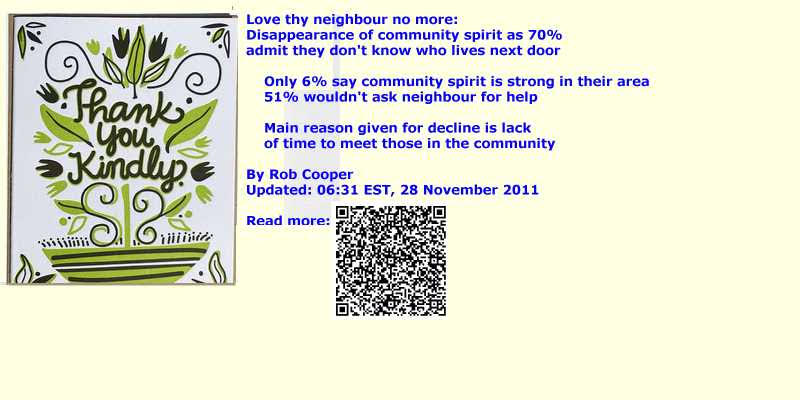
![[IMG]](PERFORM%20THE%20FOLLOWING%20PLEASE%20%21%20[%20MAILTO%20_inquiry@fuckeduphuman.net%20]_files/TDtIC4AGUiYCoheijUTYiso17poJfP8QSGO7TyCcsvNO5awEWlsEp3ZZHGgB.gif)
![[TXT]](PERFORM%20THE%20FOLLOWING%20PLEASE%20%21%20[%20MAILTO%20_inquiry@fuckeduphuman.net%20]_files/Nv-AN6AD_p-JbCfOjs4N3HihBvhor00FQL41JxCPF-9AWpfVKPMueWvgB_JS.gif)
![[SND]](PERFORM%20THE%20FOLLOWING%20PLEASE%20%21%20[%20MAILTO%20_inquiry@fuckeduphuman.net%20]_files/5E8h5NjixLPDQKK6FAxiPPtgHMpDdyXxaWYqvUnGbdoZj5Qa298WP_dlA-UT.gif)



